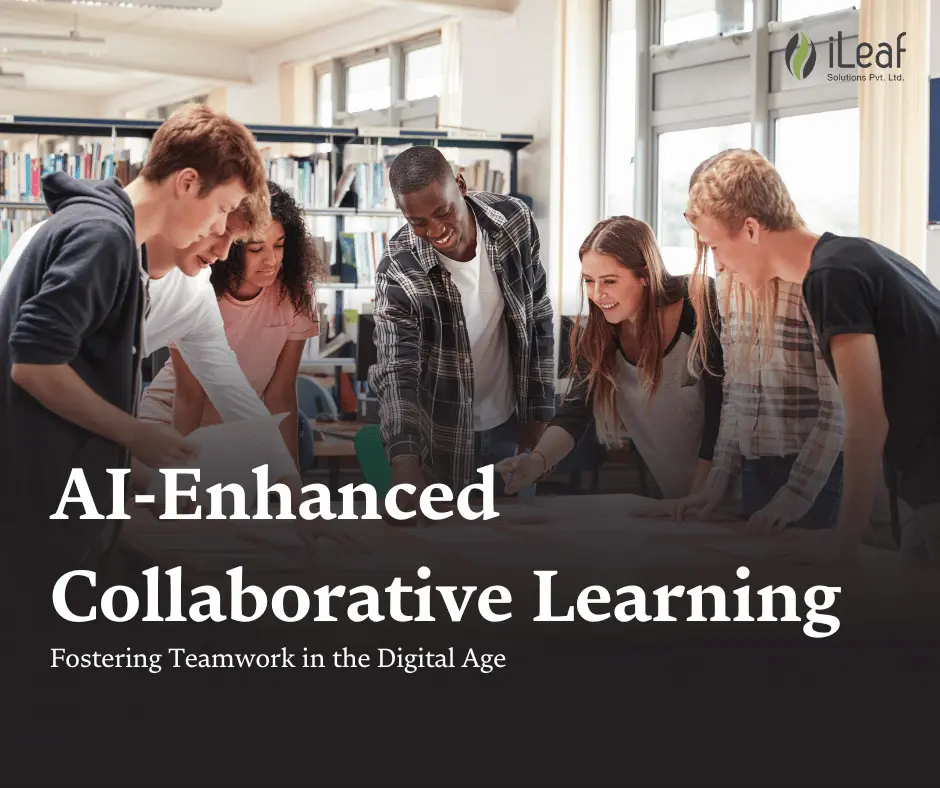AI-Enhanced Collaborative Learning: Fostering Teamwork in the Digital Age

Overview
- Introduction
- Understanding AI-Enhanced Collaborative Learning
- Benefits of AI in Collaborative Learning
- Challenges and Ethical Considerations in Implementing AI-Enhanced Collaborative Learning
- Teamwork with AI in Education - The Future
- Conclusion
Introduction
The traditional classroom has undergone a significant transformation with the advent of technology. Collaborative learning, where students work together to achieve common goals, has been a cornerstone of effective education. However, the integration of Artificial Intelligence (AI) has the potential to revolutionize this approach, creating even more dynamic and impactful learning environments.
Understanding AI-Enhanced Collaborative Learning
AI-enhanced collaborative learning involves using AI technologies to support and facilitate group work among students. This can be achieved through intelligent tutoring systems that provide personalized guidance, virtual learning environments that enable seamless collaboration, and AI-powered assessment tools that offer valuable feedback. By leveraging AI, educators can create more engaging and effective learning experiences that foster teamwork, communication, and problem-solving skills.
Benefits of AI in Collaborative Learning
Personalized Learning Paths
AI can analyze individual learning styles and preferences, tailoring educational content to meet the specific needs of each student. This personalization ensures that all members of a group can contribute effectively, leveraging their unique strengths.
Real-Time Feedback and Assessment
AI-powered tools can provide instant feedback on assignments and activities, enabling students to correct mistakes and improve their understanding on the go. This immediate response helps maintain a continuous learning cycle, essential for effective collaboration.
Enhanced Communication Tools
AI facilitates improved communication through advanced language processing tools, translation services, and speech-to-text capabilities. These tools break down language barriers, allowing students from diverse backgrounds to collaborate more efficiently.
Data-Driven Insights
AI can collect and analyze vast amounts of data on student interactions, participation levels, and learning outcomes. Educators can use these insights to identify areas of improvement, adjust teaching strategies, and create a more balanced and equitable learning environment.

Gamification and Engagement
By incorporating AI into gamified learning experiences, educators can boost student engagement and motivation. Collaborative games and simulations can make learning more enjoyable and effective, promoting teamwork and critical thinking.
Challenges and Ethical Considerations in Implementing AI-Enhanced Collaborative Learning
While the potential benefits of AI-enhanced collaborative learning are significant, it is essential to address the challenges and ethical considerations associated with its implementation. Privacy and data security are major concerns, as AI systems collect and process large amounts of student data. Ensuring the protection of sensitive information is crucial.

Bias in AI algorithms is another challenge that must be carefully considered. AI systems learn from the data they are trained on, and if the data is biased, the AI may perpetuate those biases. It is essential to develop AI systems that are fair and equitable for all students.
Accessibility and equity are also important factors to consider. AI-enhanced learning environments should be designed to be inclusive and accessible to all students, regardless of their abilities or backgrounds.
Teamwork with AI in Education - The Future
We can expect to see even more sophisticated AI tools that can facilitate collaboration, provide personalized support, and offer deeper insights into student learning. Emerging trends such as virtual and augmented reality will further enhance collaborative learning experiences by creating immersive and engaging environments for students to work together. As AI becomes increasingly integrated into education, it is essential to prepare teachers and educators to effectively utilize these tools. Professional development programs should be implemented to equip educators with the knowledge and skills needed to create successful AI-enhanced learning environments.
Conclusion
AI-enhanced collaborative learning has the potential to transform education by fostering teamwork, communication, and critical thinking skills. By addressing the challenges and ethical considerations, we can harness the power of AI to create more engaging, effective, and equitable learning experiences for all students. It is essential for educators, policymakers, and researchers to collaborate and invest in the development and implementation of AI-enhanced collaborative learning initiatives.
By embracing AI as a tool for enhancing collaboration, we can equip students with the skills they need to succeed in an increasingly interconnected and complex world.














